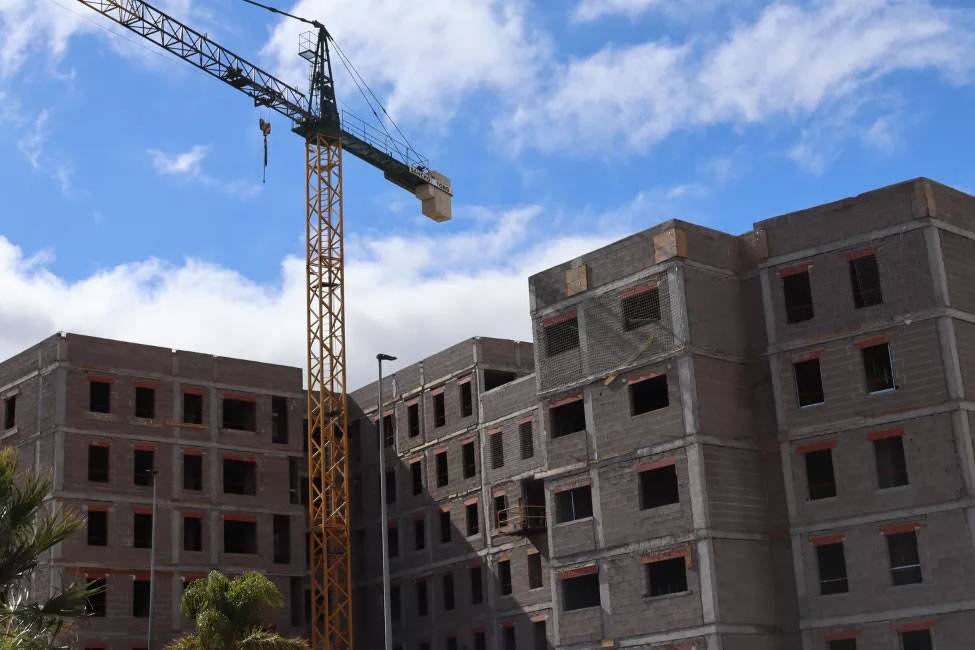New Law to Speed Up Urban Building Licences in the Canary Islands
- 22-04-2025
- National
- Gobierno de Canarias
- Photo Credit: AH
The Canary Islands Government has introduced a new law designed to significantly accelerate the approval of urban planning licences, aiming to cut waiting times from an average of two years to under six months.
The reform, driven by the Ministries of Territorial Policy and Public Works, is a response to long-standing delays in housing development across the archipelago.
Developed in collaboration with key industry stakeholders, the legislation introduces a more agile system by allowing technical reports, essential to licence approval, to be produced not only by municipal planning services but also by professional associations or accredited private entities.
These reports, which can be commissioned by local councils or directly by developers, are capped in cost to match the planning fees of each project.
Though not formally binding, favourable reports will take immediate legal effect and will no longer require further municipal approval, unless disagreements or omissions arise. In such cases, local authorities will retain the power to complete the file and make a final decision.
According to officials, the law strengthens municipal capacity without undermining legal oversight, granting local councils greater flexibility and access to external resources to address backlogs more efficiently.
One of the key motivations behind the reform is to reduce the administrative burden currently facing many local governments. Housing Minister Pablo Rodríguez cited a striking example of a municipality in Gran Canaria with a population of 100,000, where only one technician is currently responsible for validating all planning applications.
“This bottleneck is unsustainable. We must provide the tools and resources to improve access to housing,” he said, referencing successful reforms in Madrid and Valencia.
The new decree also introduces support measures for municipalities experiencing demographic challenges, which will be implemented in the coming weeks through a newly established Virtual Office for Demographic Challenges.
In addition, the law builds on previous initiatives aimed at increasing affordable housing and reclassifying land for residential purposes. It also outlines procedures for declaring stressed residential market areas under national housing legislation.
For the first time, the Canary Islands will introduce incentivised affordable housing schemes, offering benefits to developers who meet certain affordability criteria, particularly benefiting middle-income individuals who do not qualify for traditional housing assistance.
Effective immediately upon publication, the decree seeks to unlock stalled urban planning processes and stimulate both residential development and economic activity across the region.
Other articles that may interest you...
Trending
Most Read Articles
Featured Videos
TributoFest: Michael Buble promo 14.02.2026
- 30-01-2026
TEAs 2025 Highlights
- 17-11-2025



























































